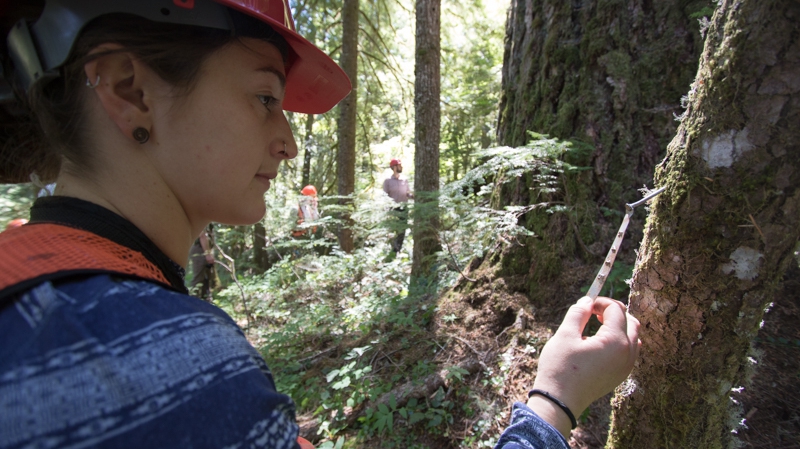Long-term Research
Our understanding of the forested ecosystem at the HJ Andrews Experimental Forest is the product of decades of research. Funding for our long-term research comes from the US Forest Service's Pacific Northwest Research Station and from grants from the National Science Foundation's (NSF) Long-Term Ecological Research program.
The NSF has funded the Andrews Forest program through eight six-year grant cycles. The first two cycles, LTER1–2, focused on establishing long-term measurements and understanding fundamental ecosystem structure and processes related to old-growth forests, streams, and effects of logging on watersheds. Since LTER3, research at the site has been guided by a central question: How do land-use, natural disturbances, and climate change affect three key ecosystem properties: carbon and nutrient dynamics, biodiversity, and hydrology? Subsequent LTER cycles have continued to examine this question and have adopted specific scientific themes: LTER3—process-based understanding of landscape dynamics; LTER4—effects of early succession on ecosystem dynamics and the impact of species attributes on ecosystem dynamics; LTER5—synchronous temporal behaviors and drivers of biogeochemical cycling in small watersheds; LTER6—complex topography and its influence on interactions between drivers and ecosystem responders; and LTER7—connectivity between spatially variable flows of air, water, nutrients, organisms, and the expression of regional and global climate change and land-use in mountain ecosystems. In our current funding cycle, LTER8, we have three goals: To understand how disturbance legacies interact with environmental change to influence ecosystems; to understand how species interactions influence population and community responses to environmental change; and to evaluate how interactions of science, values, and ecological conditions influence land use decisions.

